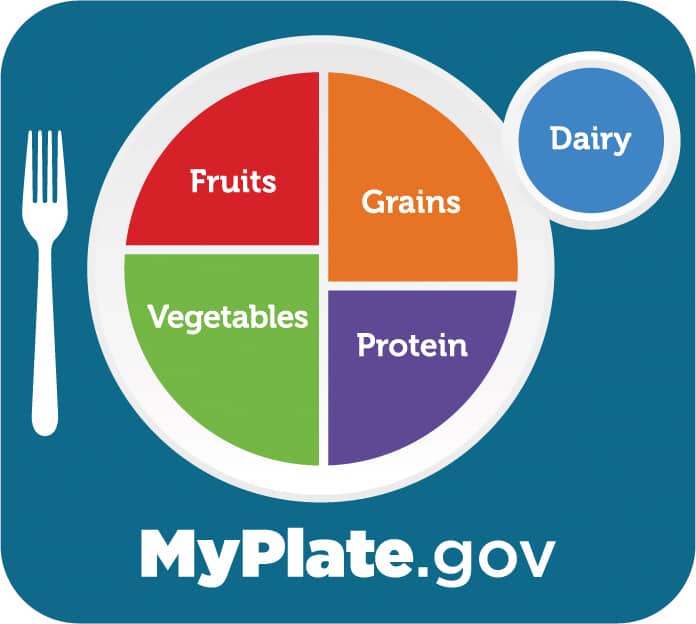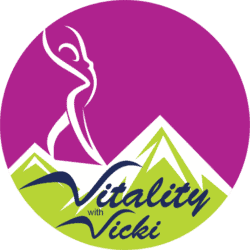 If you’ve read my About Me page on this website you may already know why I got into this business of fitness and health in the first place. For those of you who didn’t, let me recap. Since my mother died of cancer in 2010, I started researching everything I could about cancer and how to prevent it.
If you’ve read my About Me page on this website you may already know why I got into this business of fitness and health in the first place. For those of you who didn’t, let me recap. Since my mother died of cancer in 2010, I started researching everything I could about cancer and how to prevent it.
From that education, I learned that the best way to “fix” my health and prevent illness was to focus on natural living. That includes eating a more natural diet, moving more, and getting outside as much as possible. When we do these things we naturally get what we need for better health. I wanted to share that information with others so they could benefit too.
Unfortunately, we live in a culture of manufactured everything. That includes our food and our environments. We eat “food” from packages, neither of which exist in nature, and we spend most of our time indoors sitting in front of manufactured devices. Then we spend the rest of our time fighting the consequences of these habits.
The lifestyles that we’re now used to aren’t helping us to thrive in life. And that’s apparent in the high rates of disease we have here in America. If you want to be healthy and feel good then getting enough nutrients is the best place to start.
The vitamins and minerals that make our bodies run like they’re supposed to are called micronutrients. But in this article, I’m just referring to them as nutrients to keep it simple.
One of my goals with my coaching is to encourage my clients to get more nutrients by eating healthy, natural foods. And the point of this blog is to help you understand how getting enough nutrients is the first step to better health.
Related article: What does it mean to “eat healthy”?
Who decides our nutritional needs?
The Food and Nutrition Board of the Institute of Medicine is the body that comes up with the recommendations for nutritional needs for the U.S. government. Those recommendations are guidelines based on the latest scientific research on nutrition and health.
The guidelines are put in place so public schools, the federal government, and public health agencies have a foundation on which to build nutrition programs. They’re also used to put labels on food items we buy for consumption. That way we have an idea of what, if anything, we’re getting out of those foods.
The word “guidelines” is used because they are not hard and fast rules that work for everyone. And not everyone agrees with them. Nutrition is always difficult because every body is different. What your body needs might be very different from what mine needs.
Here’s a perfect example. They’ve recommended dairy consumption for decades even though the NIH says that “about 30 million American adults have some degree of lactose intolerance by age 20”.
My own husband feels terrible if he drinks milk. And he grew up on a dairy farm where he was told to drink milk every day because it was supposed to be good for him!
I wanted to explain more about the guidelines in this article but realized it’s just too detailed and confusing! So if you’re really interested, you can sift through the 164-page 2020-2025 guidelines yourself!
Thankfully, the government came up with a simple and easy-to-understand graphic to help you figure out what to eat.

How do you know if you’re getting enough nutrients?
You don’t! But I think this image tells us much more than any numbers or statistics can about getting enough nutrients in your diet. Who wants to keep track of and calculate how many vitamins and minerals we get each day from our food? Just fill your plate the way it shows you to and it will be much harder not to.
Related article: How to lose weight on a plant-based diet.
This image shows that half of your dinner plate should be fruits and vegetables. How many of you actually have fruits or veggies at every meal? The other half of your plate should be grains and some kind of protein. And the protein doesn’t have to be meat.
At least half of the grains you eat should be whole grains rather than refined, like “enriched” or white flour. For example, the bread you buy should read “100% whole wheat” on the label. That’s how you know it’s a whole grain.
Related article: Is bread healthy?
And they’re still saying you should have some form of dairy, although now they say it can be a fortified dairy alternative. Neither is actually necessary for us, but if you want some variety then pick the type you like best.
Notice that there is no “sugar” or dessert category on the plate? That’s because we don’t need refined sugar in our diets. Carbohydrates break down to glucose (sugar) in our bodies and that’s the healthy way of getting nutrients. If you’re trying to avoid sugar then save your fruit for dessert. The longer you’re off sugar, the sweeter fruits will taste to you!
We eat so many unnecessary (unhealthy) things that we don’t leave room for the really healthy stuff we should be eating. If you filled your plate at each meal like this graphic, you would have a lot less room for the junk.
So that’s one easy way of getting enough nutrients in your diet for better health. Just like we tell kids, “eat your meal first, then you can have dessert”.
Can you get all of your nutrients from food?
I would love to tell you that you could but it seems it’s getting more and more difficult as time goes on. Why? In part, because modern farming practices are depleting our soils of the nutrients the plants need. In addition, the excess carbon dioxide in our atmosphere is also depleting the nutrient levels of the plants we grow.
When our plants have fewer nutrients, we in turn get fewer nutrients from eating them. Of course, this is another big debate in the world of health and nutrition. So you may find many other articles on the “myth” of nutrient-depleted plants.
This is why reading is so important. If you do the research yourself, you can make your own informed decisions based on who you choose to believe. Did you know that doctors aren’t even required to have nutrition education in most medical schools in the U.S.? I think you’re better off doing the research and making your own decisions. You know your body better than anyone anyway.
If you don’t like to read, a great movie to watch is “Kiss the Ground” which is currently on Netflix. It does a good job of explaining the problem with our soil and farming practices in the world without being too depressing!
What I’ve come to believe in all my reading is that eating as much natural food as possible will give me the greatest health benefits. But I also believe it is sometimes necessary to supplement with some extra vitamins and minerals. There are many reasons why eating natural foods every day doesn’t guarantee we’ll get all the nutrients we need for good health. But that’s another blog!
Which nutrients should you be most concerned about?
Well, they’re all important because they all have different roles in our bodies. If you’re low on a certain nutrient something won’t be working quite right in your body. And that can lead to problems. If you ask 10 people which nutrients you should be most concerned about, you’ll likely get 10 different answers.
However, some nutrients are easier to have a deficiency in than others. But especially in people that are not eating large amounts of natural foods. Did you know that according to the CDC only 1 in 10 Americans are getting the recommended number of fruits and veggies a day? That doesn’t bode well for getting enough nutrients to prevent disease!
The more common vitamin deficiencies in the U.S. are Vitamin C, D, B12, B6, calcium, magnesium, iron, and iodine. This is not a definitive list but just some of the common lacking nutrients. Some of these deficiencies can also cause low energy levels, which doesn’t help with motivation to stay healthy.
Related article: How Iron affects our energy levels.
Making sure we’re getting enough nutrients for optimal health isn’t really on most people’s radar. We just eat what we like eating and “try” to get some fruits and veggies into our diets every now and then. As if it doesn’t really matter! Unfortunately, we can’t really know if we’re getting enough for optimal health or not unless we get tested.
How to know if you need more nutrients
If you don’t think you’re eating as naturally as you could be, then you should consider getting tested for nutrient deficiencies. This is the only way to really know if you’re low on anything. I’ve done this for many years. At every yearly exam, I request a blood draw to test certain vitamin levels in my body. This is how I know I need a Vitamin D supplement.
Many people seem to believe that taking supplements is a very risky behavior. This is because the supplement industry isn’t regulated. So you could be buying pills that aren’t doing you any good. But there are things to look for, and some advice to follow from other experts.
In the nutrition class I took, we were told to only buy the supplements with the “USP” label on the side. This stands for United States Pharmacopeia, a non-profit agency that tests supplements according to certain standards to make sure they’re safe and effective. It makes me feel better about what I’m buying!
One of the people I trust to advise me on nutritional supplements is Andrew W. Saul, Ph.D. I was introduced to him through the documentary Food Matters and at least one other docuseries on health. No, I don’t know him personally! But I think he’s brilliant so I also got his book “Doctor Yourself: Natural Healing that Works” which I can’t stop reading!
If you would like more in-depth nutritional information and referrals to other sources of information, I would highly recommend this book! It doesn’t contain everything you might want to know but his many resources will. He also has a website doctoryourself.com, which is terrible looking! But it does have a ton of good information if you can get past the do-it-yourself look of the site!
Related article: Tips for a healthier diet: GBOMBS.
My final thoughts
I got into the business of health because I wanted to know what I could do to avoid getting cancer. By educating myself I now have a much more positive outlook on my future health. Now I know I have a lot of control over my health and quality of life. And that’s motivating!
With this blog, I hope I’ve sparked some interest in you to be more mindful of eating more naturally. Just getting away from all the processed food is a huge start. But what do you eat if you’re not eating from packages? Well, you actually have to buy and chop up some veggies to make into recipes.
I know a lot of people don’t like the idea of spending time prepping and cooking but isn’t your health worth it? Is there really nothing else that can be cut out of your day to allow more time for preparing good, natural food? I think there is, it’s a matter of making your health a bigger priority.
Related article: Accept meal prep!
Still, even if you’re eating a mostly healthy diet of whole foods you might want to consider nutritional supplements or at least get tested for deficiencies. Just be sure you research before diving in. There is the possibility of getting too much of a certain nutrient.
I think it’s possible to avoid many diseases and illnesses by getting enough nutrients in our bodies. But you have to convince yourself with research. Follow some of the links I give in this blog for a little more information. Knowledge is power!

